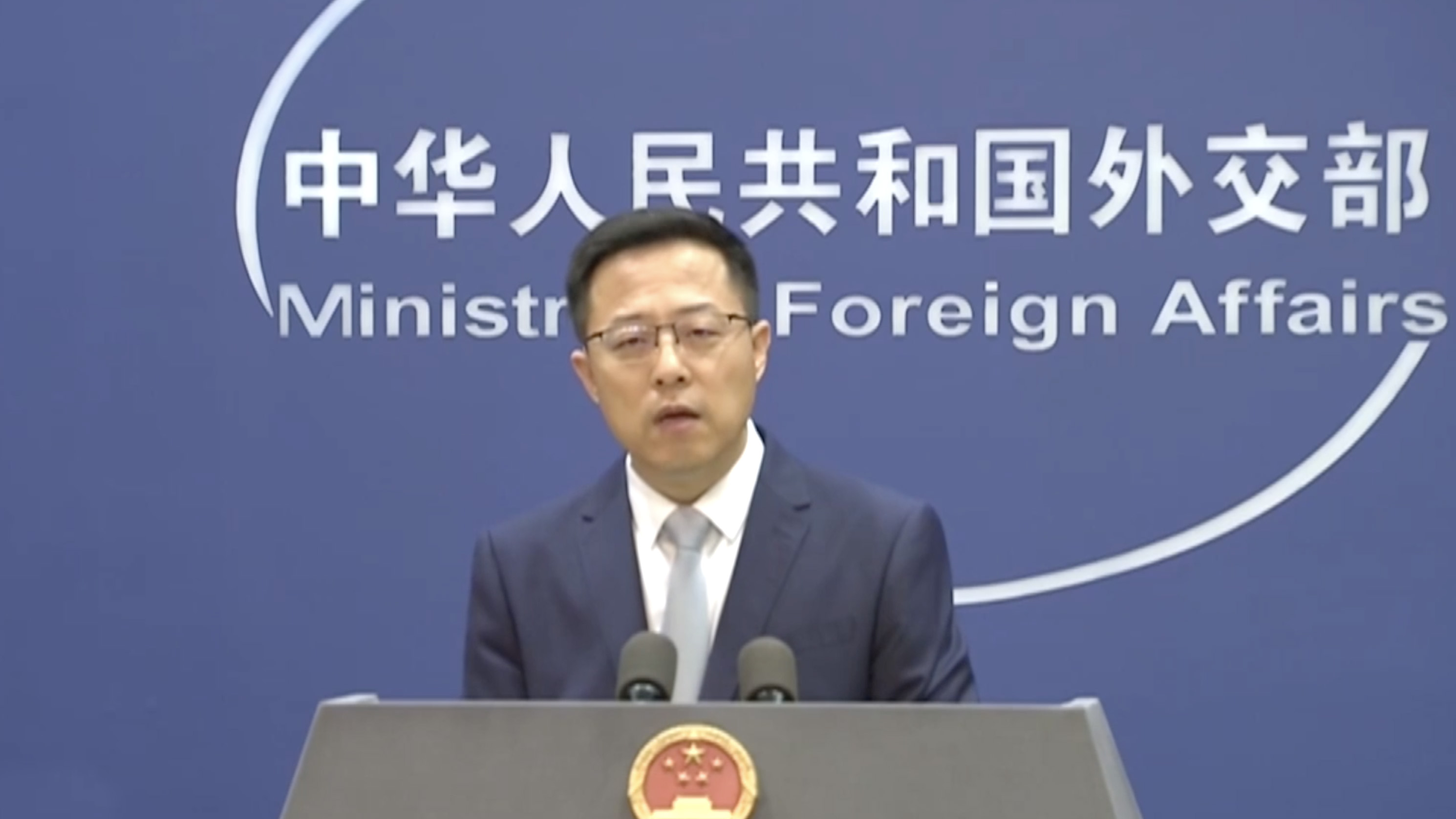Once again, the U.S. and Japan have drawn the world's attention with provocative moves recently on China's Taiwan region, almost three months after the two nations issued a joint statement focusing on a so-called Indo-Pacific alliance against China, with Taiwan question a focus.
On Tuesday, Japan for the first time referred to the importance of "stabilizing the situation surrounding Taiwan for Japan's security" in its annual defense report, while noting that the U.S. has "demonstrated a clear stance of supporting Taiwan in military aspects."
Are the two "friends" true allies against China, or just uneasy bedfellows?
Frequent provocations with divisions exposed
It is nothing new that the U.S.-Japan alliance to make a series of inappropriate remarks on the Taiwan question and it is also not fresh that the alliance has differences regarding the question.
Take the latest rhetoric of the two sides for instance. Japan's Deputy Prime Minister Taro Aso on July 5 remarked that Japan and the U.S. should "defend" Taiwan while the Pentagon Press Secretary John Kirby reacted a day later saying the U.S. continues to observe the one-China principle but will also help Taiwan "defend" itself.
And in late February, Pentagon Press Secretary John Kirby said the U.S. supports Tokyo's sovereignty claims over the Diaoyu Islands, but he quickly corrected his "error" and apologized for the confusion.
Meanwhile, the U.S. affirms that the U.S.-Japan Security Treaty applies to the Diaoyu Islands and conducts joint drills with Japan for the defense of these islands in a bid to strengthen security cooperation with Japan.
00:47

China has expressed strong opposition to all the provocative moves, saying that they are a blunt violation of the political promises the U.S. and Japan have made to China, of the spirit of the four Sino-Japanese political documents, of the three China-U.S. joint communiques, and of the international law and of the norms governing international relations.
Read more:
China opposes U.S., Japan joint statement, says no to foreign interference
China respects Japan's development of normal relations with the U.S., but the Japan-U.S. alliance should not target any third party, still less undermine the interests of any third party, said Chinese Ambassador to Japan Kong Xuanyou on May 18 during an interview with Kyodo News.
The ambassador urged Japan to handle various external relations in a balanced way and take concrete actions to safeguard the overall interests of China-Japan relations and regional peace and stability.
Officials from China's various departments have warned many times that no one should underestimate the Chinese people's determination and strong ability to defend national sovereignty and territorial integrity.
Divergent interests of the alliance
Experts have said that Japan and the U.S. have their each purposes and plans in stirring up the situation in China's Taiwan region.
For the latest vowing of Japan and the U.S. in jointly "defending" Taiwan, Yang Taishun, a professor from Chinese Culture University, said during a program of China Media Group that Japan is trying to show its "loyalty" to the U.S. as Tokyo Olympics is just around the corner and Aso's remarks are also to gain American support for his own political interests.
Japan is scheming to hype up China threat and use it as an opportunity to strengthen military force, Yuan Chong added in an analysis on China.org.cn, an expert from China Institutes of Contemporary International Relations.
An editorial published on Taiwan region's Want Daily pointed out that while the U.S. is committed to Japan's security and mutual assistance, it also acts as a "bottle cap" to restrain Japan taking military actions independently.
The U.S.' two-faced strategy shows the divergent interests between the U.S. and Japan, Cai Liang analyzed, another scholar at the Center for Asia-Pacific Studies, the Institute for Foreign Policy Studies under the Shanghai Institutes for International Studies.
He wrote in an analysis on Global Times that the U.S. worries that if it offers generous support to Japan, Tokyo might deliberately provoke Beijing and start a conflict with China and the U.S. does not want to see that happens.
"The U.S.-Japan alliance looks solid, but their self-interests drift apart and this is something both parties know," Cai noted.
Read more:
Japan's subtle balancing act between China and the U.S.
As for the common goal of the alliance, Yuan pointed out that the Taiwan question has become a focus under the policy guidance of Japan-U.S. joint response to China.
After the Biden administration took office, the U.S. adjusted its alliance policy during the Donald Trump era, focusing on the role of allies and drawing allies together to contain China, while Japan sees itself as the front line of conflicts between China and the United States, Yuan expounded.

